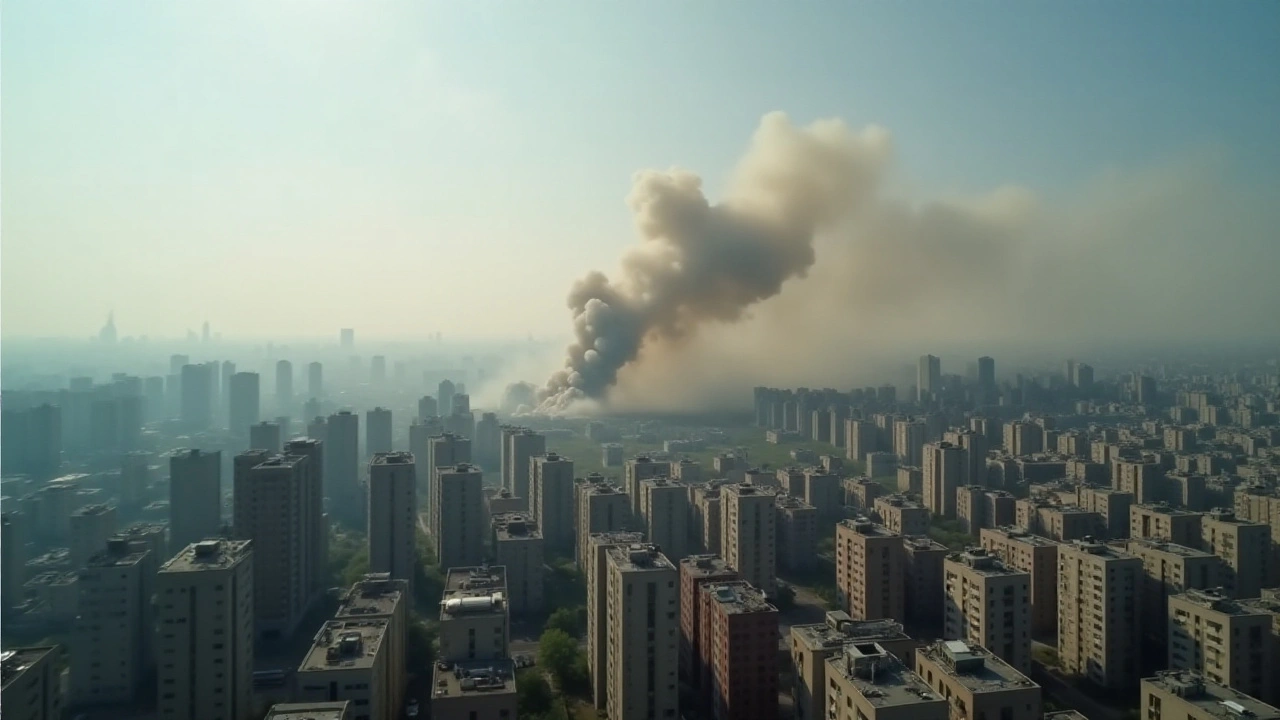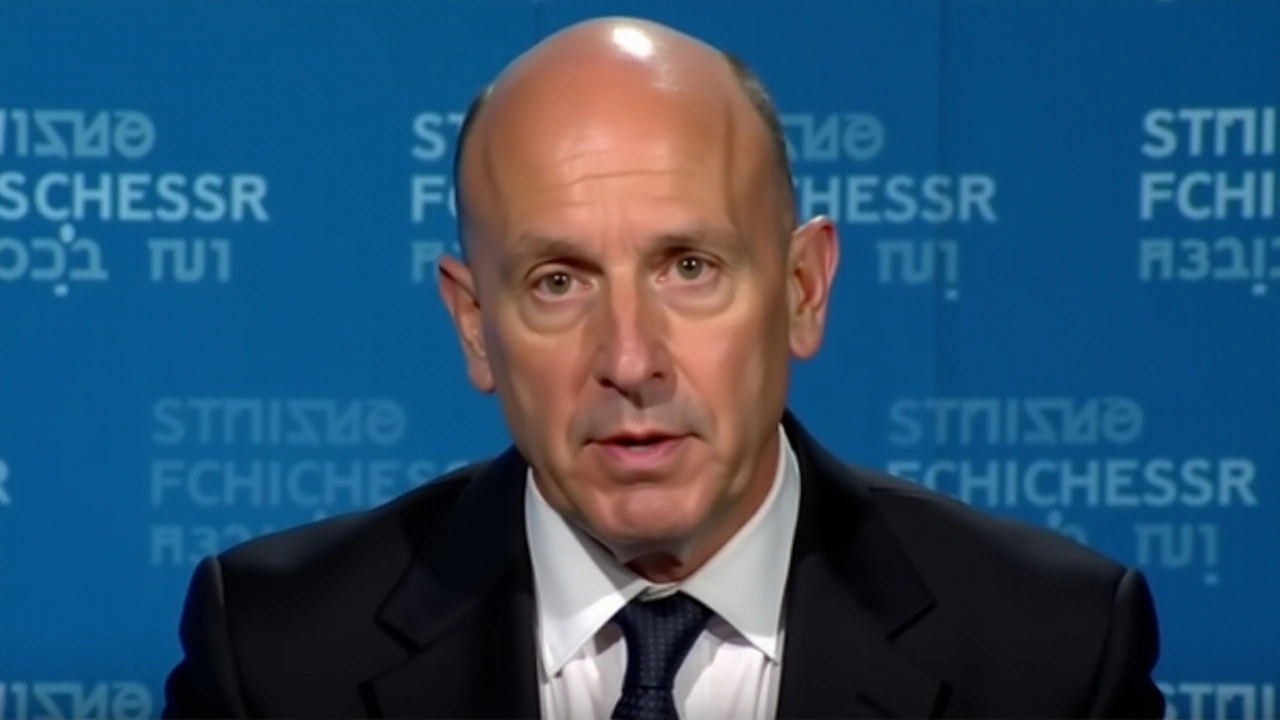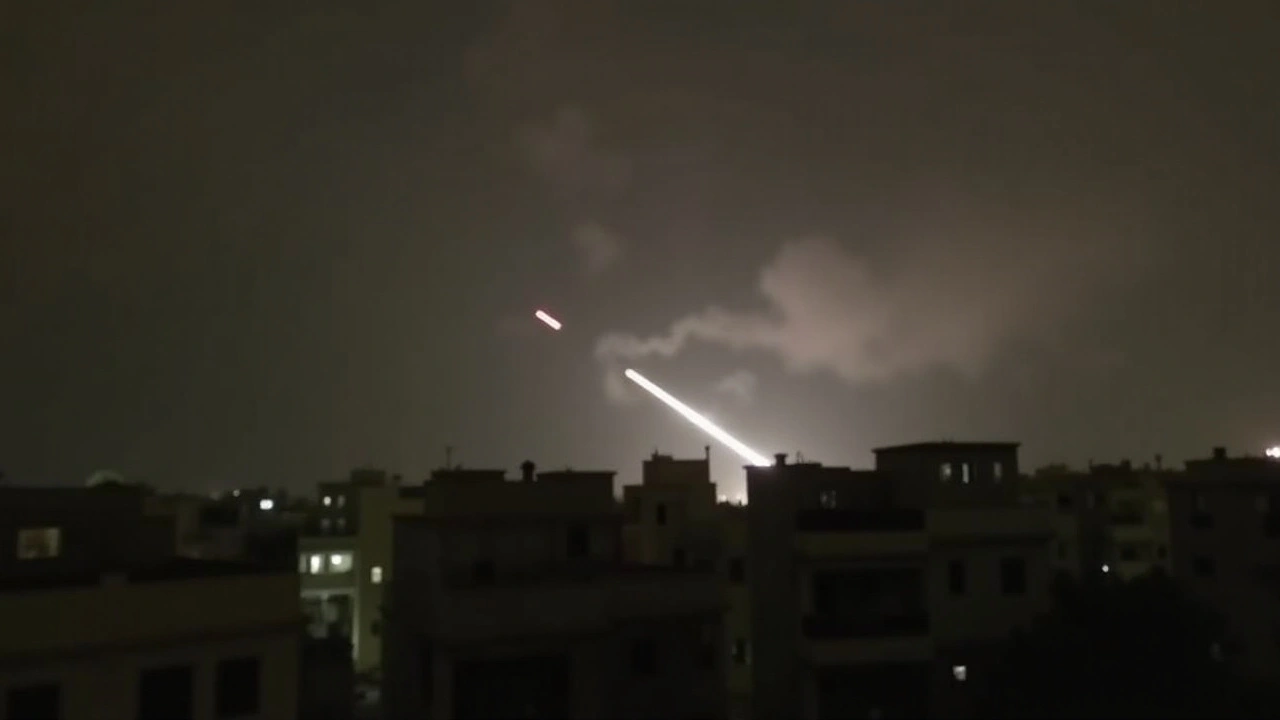Understanding the Recent Missile Strikes
In an event that has sent shockwaves throughout the international community, Iran executed a major ballistic missile strike on Israel on the night of October 1, 2024. This was not the first time this year that tensions between Iran and Israel had resulted in such a dramatic display of military power. However, the scale and the precision of this attack have focused the world's attention on a region perennially fraught with strife and geopolitical intrigue. According to reports, Iran launched approximately 180 ballistic missiles from its territory targeting key locations within Israel, including the Mossad headquarters in the bustling city of Tel Aviv and various air force bases in the central part of the country.
The backdrop to this strike paints a picture replete with longstanding animosities and recent provocations. Specifically, the attack was framed as retaliation for the killings of significant leaders from the Axis of Resistance. These include pivotal figures such as Hezbollah Secretary General Hassan Nasrallah, who was killed in Beirut, and the Hamas Political Bureau Chairman Ismail Haniyeh, who met his end in Tehran. These assassinations have intensified the already fraught relations between Iran and Israel, leading to Tehran's aggressive military response.

Details of the Attack
The Iranian offensive was carried out with notable stealth and speed. The missiles, described as faster and more advanced than those used in prior symbolic strikes earlier this year, reached their targets within an astounding 12 minute window—remarkably short given the geographical distances involved. While Israel's sophisticated defense systems managed to intercept a considerable number of the threats, the attack was not entirely without consequence. Some missiles penetrated these defenses, striking Israeli soil. The heart of Israel, Tel Aviv, reported damages with at least two civilians sustaining injuries. Tragically, a 37-year-old Palestinian resident in the West Bank was killed by falling debris.
Political and Military Ramifications
The Iranian government, for its part, maintained that the operation was a legitimate and warranted response to what it cited as 'terrorist actions' by the Israeli state. This justification, couched in the rhetoric of justice and legality, indicates the high stakes involved for Iranian leadership, including Supreme Leader Ayatollah Ali Khamenei, who has publicly backed the missile launches.
Israeli Prime Minister Benjamin Netanyahu immediately responded to the aggression, stating unequivocally that Iran had made a 'significant error' and that there would be repercussions. It is important to note that the United States had purportedly warned Israel of the impending attack, though this forewarning did little to prevent the execution of such a coordinated strike. Subsequent to the attack, American officials described the incident as having been 'defeated and ineffective,' a sentiment likely intended to reassure both international audiences and domestic constituents. Conversely, Iranian sources insisted that 90% of their missile barrage successfully achieved its intended objectives.

Global Implications
The ramifications of these strikes are by no means confined to Iranian-Israeli relations. The escalating conflict poses a significant risk of igniting a broader confrontation involving the United States, especially as Iran’s attitude toward its Western counterparts continues to harden. This dynamic is compounded by political realities within the U.S., where President Joe Biden confronts criticism over his administration’s handling of volatile Middle Eastern politics. With the U.S. presidential election a mere five weeks away, the interplay between international aggressions and domestic policy consideration has seldom been more scrutinized.
The windows to mitigate tensions and restore a semblance of stability in the Middle East seem to be narrowing. Analysts observe the fading of 'forces of restraint' historically present in the region, a condition that leaves nations and factions increasingly willing to engage in open hostilities. Hezbollah and Hamas, known allies of Iran in its opposition to Israel, have pledged continued operations unless a ceasefire comes into effect in Gaza. This further exacerbates the conditions in a region where peace efforts often prove ephemeral.
Looking Ahead
This unfolding situation highlights the delicate balance that global diplomacy seeks to maintain. It is a tale of ancient histories and modern rivalries playing out on a world stage, as both regional actors and international stakeholders grapple with potential solutions to a conflict that, left unchecked, could have dire global consequences. The eyes of the world remain fixed on the actions of both Iran and Israel, watching closely the unfolding of strategies political and military in nature.
As the dust settles from this latest confrontation, one thing remains clear: the stakes are higher than ever, and the choices made by both nations will reverberate far beyond their own borders. The coming days will be pivotal in charting the course of this historic conflict, and it is imperative that cooler heads prevail if peace is to be anything more than a fleeting promise.

